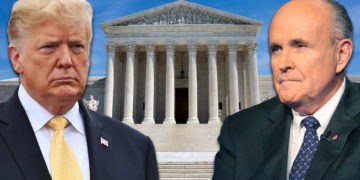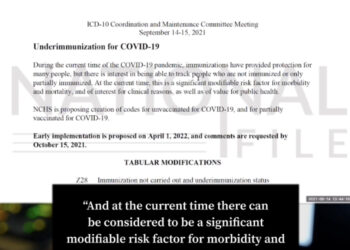Last Updated on December 12, 2020
In a move that seems to incorporate the direction that US Supreme Court Justice Samuel Alito tacitly voiced in his accompanying statement Friday’s decision not to hear Texas’s lawsuit against Pennsylvania, Michigan, Wisconsin, and Georgia, the Trump legal team is or has filed lawsuits in each of the Defendant States.
The Attorney General of the State of Texas, Ken Paxton, filed a lawsuit in the US Supreme Court against the four battleground states alleging the election laws in each of those states were violated.
The suit charged that because the procedural amendments to facilitate expanded mail-in and absentee voting in those states were not legislated, as mandated by both the US and the respective state constitutions, that the said expansion was illegal and constituted a violation of the 50 State covenant that is the basis for our Union.
The nation’s High Court rejected the suit late Friday based on the controversial point of “standing.”
With that decision, President Trump’s legal team is filing retooled lawsuits that will be filed in each of the four Defendant States and expanded to Nevada and Arizona.
“We move immediately, seamlessly, to plan B, which is to bring lawsuits now in each one of the states. We had them ready. They’re just a version of the one that was brought in the Supreme Court. So last night, the president made the decision,” Rudy Giuliani said in an interview.
“courts are saying they want to stay out of this, they don’t want the American people to hear the facts.”
Attorneys on #Trump’s legal team, @RudyGiuliani and @JennaEllisEsq, shared that the team is considering filing separate lawsuits to district #Courts. https://t.co/ZA5EuWu5se— NTD News (@NTDNews) December 12, 2020
The retooled lawsuits – that incorporate tacit direction by Justice Alito and seconded by Justice Clarence Thomas, will incorporate the charges made in the complaint filed by Texas.
Alito wrote in a separate statement from the High Court ruling, “In my view, we do not have discretion to deny the filing of a bill of complaint in a case that falls within our original jurisdiction…I would therefore grant the motion to file the bill of complaint but would not grant other relief, and I express no view on any other issue.”
Neither he nor Thomas addressed the questions in the case.
“If the state doesn’t have standing, surely the president of the United States has standing,” Giuliani continued to say in the interview. “And certainly the electors in the states have standing. So, they will be bringing those very cases right in those courts, starting today.”
Giuliani punctuated his statement by saying, “And let’s see what excuse they can try to use to avoid having a hearing on that.”





















